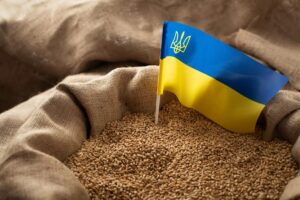
Italy has a complex and multi-level taxation system that includes taxes for individuals and legal entities, as well as various indirect taxes. Let’s take a look at the main aspects of the Italian tax system as of the end of 2024 – beginning of 2025.
Taxes for individuals:
Taxes for legal entities:
Italy also has an interesting example of incentivizing the acquisition of Italian residency – a flat tax for new residents. Foreigners moving to Italy can take advantage of a special regime by paying a flat tax of €100,000 per year on foreign income, which exempts them from the standard income tax.
In 2024, Italy implemented a tax reform aimed at simplifying the system and reducing the tax burden for certain categories of citizens. In particular, IRPEF rates were revised and additional benefits for families with children were introduced. Italy has double taxation treaties with more than 100 countries, which allows avoiding double taxation of income for residents and non-residents.
The Italian tax system is characterized by progressive rates and a variety of different taxes and fees. When planning to relocate or do business in Italy, it is recommended that you carefully study the current tax obligations and, if necessary, seek advice from professional tax advisors.
Source: http://relocation.com.ua/niuansy-systemy-opodatkuvannia-italii/

Serbia has launched a new program to support business and attract investment, let’s take a look at some of them: 1 Financial incentives: The government will increase the volume of soft loans and subsidies for entrepreneurs. The focus is on IT, agriculture, eco-technology, and other key industries.
2 Less bureaucracy: In 2025, a single digital platform for business registration and permits will be launched. This will speed up the process of starting a company and obtaining a residence permit for foreign founders.
3 Assistance to the regions: A special priority is provincial development. Business owners willing to open branches outside Belgrade will be able to count on additional grants.
What experts say:
◦ The Serbian Chamber of Commerce and Industry believes that they have been waiting for the simplification of procedures for a long time.
Analysts call for further reforms of the judicial and legal systems to make serious investors more willing to come to the country.
Why it is important for relocation: The new program is a great reason to pay attention to Serbia. Fewer formalities and more favorable business conditions = a real incentive to relocate.

The State Enterprise “Forests of Ukraine” sold 2.39 million cubic meters of timber at auction in the fourth quarter of 2024, shipped 2.24 million cubic meters of timber at the end of the quarter and brought the percentage of contract fulfillment to 94%, said Yuriy Bolokhovets, CEO of the state enterprise, on Facebook.
“The Ukrainian Energy Exchange (UEEX) announced a 90% level of contract fulfillment. In fact, this figure is even higher. After all, if the buyer refuses to buy the contracted products, we put the resource up for auction again. Therefore, the actual percentage of sales by the State Enterprise “Forests of Ukraine” exceeds 94%,” he said.
Bolokhovets added, referring to the exchange’s data, that the figure for municipal forestries is 75%, and for other forest users – 41%.
He recalled that in 2023, the percentage of contract fulfillment by the State Enterprise “Forests of Ukraine” was less than 90%.
According to him, out of 150 thousand cubic meters of the undelivered volume, 80 thousand cubic meters are military supplies. While the military used to choose mostly round timber of small diameters (15-19 cm, 20-24 cm), which is less popular with businesses, to cover dugouts, they have recently been actively ordering large diameter products (30-34 cm, 35-39 cm) for the manufacture of lumber for trench construction. Military orders are given top priority, the CEO explained.
He also emphasized that harvesters work in a shortage of personnel, crews are not booked, workers are mobilized, sometimes en masse, and therefore the contractor cannot always provide the required volume of harvesting in time for objective reasons. In addition, sanitary felling may not pass the approval procedure for one reason or another.
“Our regional branches are tasked with minimizing the negative consequences for customers in such cases. A hotline operates at the central office level: a solution must be found for each problem situation that will satisfy the company’s client,” the CEO summarized.
As reported, Ukraine launched a forestry reform in 2016. It has already introduced the sale of raw wood at electronic auctions. Since 2021, an interactive map of wood processing facilities has been operating in a test mode in a number of regions.
The industry has implemented the Forest in a Smartphone project, which contains a list of logging tickets for timber harvesting and allows you to check the legality of logging on the agency’s online map.
On June 1, 2023, Ukraine launched a pilot for the electronic issuance of logging tickets and certificates of origin of timber. In addition, the State Enterprise “Forests of Ukraine” has launched a pilot project to procure timber harvesting services through the electronic platform Prozorro.

Northern Mining and Processing Plant (Northern GOK, Kryvyi Rih, Dnipro region), a part of Metinvest Group, invested UAH 122 million in overhaul of railway equipment and machinery in 2024.
According to the plant, a new two-section 2TE10M mainline diesel locomotive has recently been put into operation at Pivdennyi GOK after overhaul. It transports rock mass in the Pervomaisky open pit.
The locomotive was overhauled for more than three years by specialists from Daugavpol Locomotive Repair Plant. All key components and assemblies in two sections were upgraded to meet the passport parameters. The performance characteristics and service life of all equipment units have been updated, which will extend the service life of the locomotives for another six years.
The repaired locomotive was tested for rock haulage. To date, the equipment has already transported 1.1 thousand tons of ore per trip.
“Given the numerous restrictions and challenges of the war, maintaining the equipment’s performance remains one of the company’s priorities. This is especially important as business plans are expanding. The plant continues to upgrade its rolling stock to ensure the reliability and efficiency of rock transportation. The experience of cooperation between the company’s enterprises and Latvian repairmen began in 2017 and continues due to the high quality of the work performed,” explains Vladimir Nazarenko, head of the Southern GOK’s maintenance department.
Yenakiieve Mining is part of Metinvest Group, whose main shareholders are System Capital Management (SCM, Donetsk) (71.24%) and Smart Holding Group (23.76%). Metinvest Group’s management company is Metinvest Holding LLC.

President of Ukraine Volodymyr Zelenskyy signed Law No. 4116-IX on amendments to certain legislative acts of Ukraine to combat gambling addiction (ludomania) and improve state regulation of activities related to the organization and conduct of gambling and lotteries. According to the website of the Verkhovna Rada, the draft law was sent for signature by the President of Ukraine on December 9, 2024, and returned with his signature on January 3, 2025.
According to the law, by April 1, 2025, a new authorized body will be created instead of KRAIL and a ministry will be designated to formulate policy in the field of gambling and lotteries.
The law also introduces a mechanism for restricting access to illegal gambling websites/mobile applications, and prohibits gambling advertising (with the following exceptions: on TV and radio at night, in media for people over 21, on platforms and search engines with a target audience over 21).
In addition, it is prohibited to offer or reimburse expenses for participation in gambling, make phone calls, send messages to an indefinite number of people, and offer free bonuses instead of placing bets and accepting bets on credit or with subsequent payment.
The advertisement itself prohibits the participation of military personnel, volunteers, popular figures, as well as the use of war-related topics.
The law also prohibits persons who are owners or officials of gambling companies that have tax or license arrears, sponsorship, except for sports sponsorship, from obtaining a license.
According to the adopted law, payments for gambling will be made exclusively in cash through current bank accounts, and the use of other payment services is prohibited.
It is emphasized that the law makes lotteries subject to most of the restrictions on the gambling business: requirements for the reputation of officials, tax debt, relations with the aggressor country, and exclusively bank payments.
As for licenses for state lotteries, foreign entities with relevant experience are allowed to obtain them.
The law also clarifies the rules on the mandatory use of cash registers by gambling businesses, the rules on the impossibility of obtaining a license by persons associated with the aggressor country, namely, the use of their brands is prohibited, limits on expenses and game time, as well as mandatory breaks are set.
The law also introduces “control purchases” during video-recorded inspections.
As reported, on December 4, 2024, the Verkhovna Rada supported the draft law No. 9256d on strengthening control over the gambling market and liquidating the Commission for Regulation of Gambling and Lotteries (CRGL) in the second reading and by 239 votes in total.
According to Mykhailo Fedorov, Deputy Prime Minister for Innovation, Education, Science and Technology and Minister of Digital Transformation, the essence of the law is to reorganize the CRGL and remove the human factor from the license issuance process. Further, to digitalize licenses so that they are issued automatically according to clear criteria and to start implementing an online monitoring system.
Prior to that, on March 29, 2024, Pavlo Petrychenko, a soldier of the 59th Brigade of the Armed Forces of Ukraine, registered a petition asking the president to pay attention to the harm that online casinos and ludomania (gambling addiction) cause to the Ukrainian army and society. By the evening of the same day, the petition had gained over 26 thousand votes. The President of Ukraine instructed the heads of the Security Service of Ukraine, the State Special Communications Service, the Ministry of Digital Transformation, and the Secretary of the National Security and Defense Council to collect analytics on the operation of online casinos and propose their decision next week.
According to Danylo Hetmantsev, chairman of the parliamentary committee on finance, tax and customs policy, this situation is related to the inactivity of the CRGL, which was created three years ago. He believes that the regulator did not develop responsible gambling rules separately for both organizers and players and organized “selective control in the best corruption traditions” rather than total control over the organizers’ compliance with the requirements to restrict access to gambling for persons listed in the Register of Self-Restrictions.

In 2024, Ukraine reached the pre-war level of exports of $24.5 billion, accounting for 59% of total exports, the second historical record after 2021, when the country supplied $27.7 billion worth of agricultural products to foreign markets, Minister of Agrarian Policy and Food Vitaliy Koval said on Telegram.
The Minister clarified that in total, Ukraine exported 78.3 million tons of agricultural products in 2024. At the same time, sunflower oil accounted for the largest share (21%), with almost 6 million tons exported for $5.1 billion. Corn was in second place, accounting for 21% of agricultural exports with 29.6 million tons worth $5 billion, and wheat was in third place, with 15%, 20.6 million tons worth $3.7 billion.
Among the leaders, Koval named rapeseed – 7% (3.8 million tons for $1.8 billion), soybeans – 5% (3.4 million tons for $1.3 billion), cake and residues obtained during the extraction of vegetable fats and vegetable oils – 4% (4.7 million tons for $1 billion).
The share of meat and edible poultry products reached 4%. These products amounted to 447 thousand tons worth $958 million. Barley (3.3 million tons worth $557 million) and sugar (746 thousand tons worth $418 million) accounted for 2% each, the Minister of Agrarian Policy summarized.